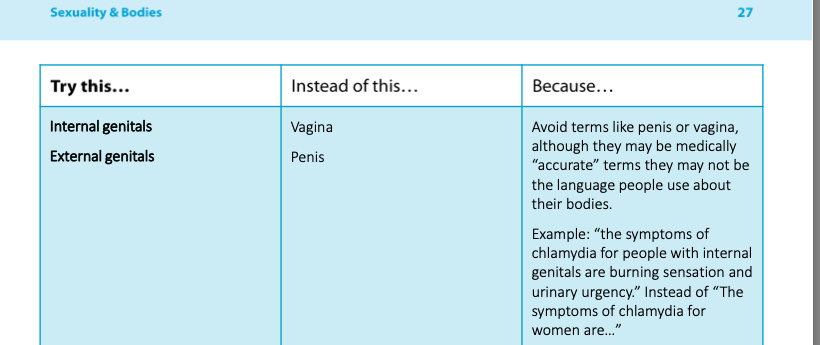British Columbia releases inclusive, social justice-oriented COVID-19 Language Guide

The British Columbia Centre for Disease Control has set its priorities for the COVID-19 pandemic that has so intensely affected the lives of Canadians: Inclusive, social justice-oriented language.
Released on August 12, the COVID-19 Language Guide “aims to make COVID-19 content more inclusive and prevent stigmatization.”
The guide, 27 pages long, instructs healthcare workers to police their words so as not to offend certain groups. Specifically, it asks them to replace commonly used, medically-accurate, such as “vagina” and “penis”, with new concepts such as “internal genitals” and “external genitals.”
The guide encourages the elimination of terms commonly associated with the female sex, telling healthcare practitioners to refer to pregnant women as “pregnant people” or “breastfeeding” as “chestfeeding.” But while the focus appears to be on sex and sexuality, more ludicrous demands are made, such as on page 16 where the guide stresses the importance of calling drug addictions “persons who use substances regularly.”
Despite being a COVID-19 guidebook, little of it is actually aimed at COVID-19 specific information – and that which is focuses on stretching out language so as to not “stigmatize” those with COVID-19. On page 11, for example, the guide stresses the replacement of commonly used slogans such as “fight/battle/attack the virus” with “protect from COVID-19,” concerned that “battle and war references can evoke images of violence and panic.”
The BC-CDC appears to even be concerned for the feelings of the coronavirus itself, encouraging the replacement of “infect” and “COVID-19 infection” with “the virus responsible COVID-19.”
While the BC-CDC stresses “inclusive language,” other virology experts and medical centers are focusing on the hard data needed to accurately treat and target the pandemic. COVID-19 is known to infect more men than women, and also have a significant racial disparity that affects minority groups disproportionately, calling into question the usefulness of neutral, “inclusive language” that would impede the exploration of those factors.
Don't Get Censored
Big Tech is censoring us. Sign up so we can always stay in touch.












